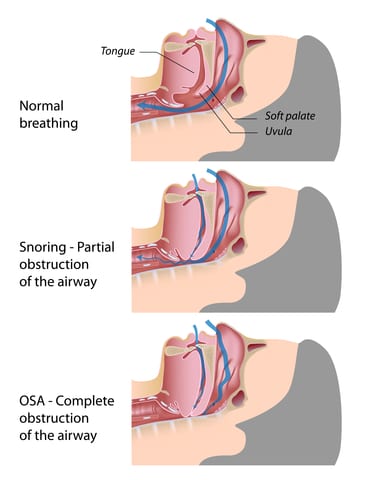
Sleep apnea, or sleep-disordered breathing, is an abnormal cessation of respiration occurring while a person is asleep. In most instances, the sleeper is not aware of these occasional breathing stoppages as they do not cause a full wakefulness. Sleep apnea occurs more often among African-American men than among white women, especially Hispanic and black men.
This may account for why African-Americans are more likely to suffer from the condition than other racial groups
Sleep apnea may result from one of several possible causes. The most common cause is obstructive sleep apnea, which occurs when the airway becomes obstructed during the process of sleeping and causes the body to stop breathing. Obstructive sleep apnea is considered a disorder by the medical profession, but it is not considered to be a disease in and of itself. It can cause many physiological problems including increased stress and reduced energy levels, as well as being a risk factor for many diseases.
There are some simple steps you can take to reduce the likelihood of you having the disorder, including making certain lifestyle changes and performing certain breathing exercises. In the case of obstructive sleep apnea, it is important to identify and treat any potential causes so that your physician can determine if treatment is necessary.
Apnea is classified into two categories: central and obstructive. Central sleep apnea occurs as a result of the muscles in your throat relaxing during sleep and causing you to snore. Obstructive sleep apnea, which is caused by a blockage in the airway, happens when the obstruction is caused by tissue growths, such as fibrous scar tissue in the throat. Although both types of apnea are caused by a problem with the soft tissues of your throat, they occur differently. As a result, different treatment options are used in dealing with each type.
Sleep medications are prescribed to treat symptoms associated with either type of apnea. However, there are a number of medications and devices on the market that have been shown to be successful in treating both conditions, which may help to eliminate the need for conventional medicines.
In addition, you can use devices to help you breathe more easily during the day. These devices allow you to breathe through a mouthpiece, which keeps the airway open during sleep. While it may seem like a trivial matter, the difference between keeping your airways open and not is significant.

Many sleep apnea sufferers report improved quality of life after using such devices
The devices are also often worn during the day, allowing you to continue with other daily tasks, and still keep an open mouth. Many patients find they experience fewer headaches and sore throats after using the device for a time. Some devices are available at local drugstores or online, and you can also purchase them in prescription sizes if needed.
While many sleep apnea sufferers suffer for years, they do not realize the impact their condition has on their lives. By identifying and treating the cause of their apnea and ensuring the devices they use are able to reduce their occurrences, they can lead long, healthy lives.
If you suspect you may suffer from sleep apnea, you should always see your doctor to get a complete medical history. It may be necessary to get a thorough exam, which will involve obtaining a complete medical history, as well as performing a physical exam. The reason for the visit is to rule out any serious medical conditions, such as pneumonia, kidney or heart problems, as well as to determine the cause of the apnea itself.
Your doctor uses oxygen masks when you sleep, but does not provide adequate air flow. He uses a mask to provide fresh air to your throat and nose during your sleep. He also uses a mask to clear away debris and excess mucus. This helps you to breathe more freely and reduce the amount of time your mouthpiece needs to stay open.
After your doctor examines your situation, he or she can prescribe a treatment regimen for you. If your apnea is the result of a blockage in the throat, you will be given a CPAP machine, which provides a supply of air by mask and hose to keep your airway open.
If your apnea is the result of a blockage in the airway caused by a tumor or another abnormality, your doctor may recommend surgery or a procedure called a tracheostomy, in which the surgeon removes a portion of the vocal cords and the soft tissue that is located in the throat. Another option might be nasal endoscopic surgery, in which the surgeon creates a special passage for your airway that you can use while sleeping, as well as a mask to provide a more comfortable airway while you sleep.